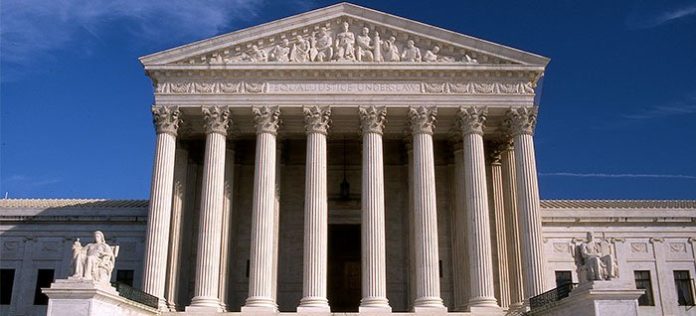
Denver District Judge Jeffrey Bayless on Dec. 15, 1993, ruled in the landmark gay rights case Romer v. Evans, that Colorado Amendment 2 violates the U.S. Constitution. The case set a precedent for numerous others dealing with the protection of gay and bisexual rights and even led to the overruling of the decade-old Bowers v. Hardwick, which criminalized sodomy.
Amendment 2, which passed by a margin of 6% the previous year, stated that the State of Colorado and any affiliated offices and agencies may not enact, adopt or enforce any policy in which homosexual, lesbian or bisexual orientation, conduct, practices or relationships entitles any person or class of persons to have or claim any protected status or claim of discrimination.
According to the Steamboat Pilot in 1992, the state generated “nationwide backlash” with the passage of the amendment, and it was estimated that already $10 million in revenue was lost as a result of statewide boycotts from out-of-state businesses and individuals. Bayless’ ruling was promising to many Coloradans in tourism-driven ski towns like Vail and Aspen, but it took another three years before SCOTUS would weigh in.
The Colorado Association of Ski Towns announced its intention to adopt a formal policy that went against the amendment, following the Town of Vail and Eagle County, where voters swung in the opposite direction of the rest of the state on this issue.
It was generally assumed by proponents of the amendment that the Equal Employment Opportunity Commission enforced protections for gays and bisexuals separately so additional rights did not need to be covered in the state constitution.
Outspoken opposition of the amendment asserted that its broad phrasing would allow the state’s judiciary to reject even an EEOC claim for discrimination and that the amendment target-ed specific groups for exclusion of civil rights. Additionally, the opposition cited fears that the broad language would open up roadblocks to litigate a host of other issues not only related to employment but also eviction from housing, assault based on sexual preference, application discrimination and other forms of discrimination. Some in opposition were forcibly outed as gay and bisexual, which drove up tensions on both sides of the issue.
One campaigning activist in favor of the amendment reported to the Louisville Times in October 1992 that someone had been following him around for weeks and stealing his campaign signs. He also reported that, because he was sporting Colorado Amendment 2 bumper sticker, someone had damaged his car’s paint by scratching it up with what he said looked like a set of keys.
The SCOTUS ruling in Romer v. Evans established that gay and bisexual individuals are entitled to the same rights as any other group to protection against discrimination. The case is referenced in a number of high-profile civil rights cases including Obergefell v. Hodges, U.S. v. Windsor and Lawrence v. Texas and led to the repeal of several state-level laws

